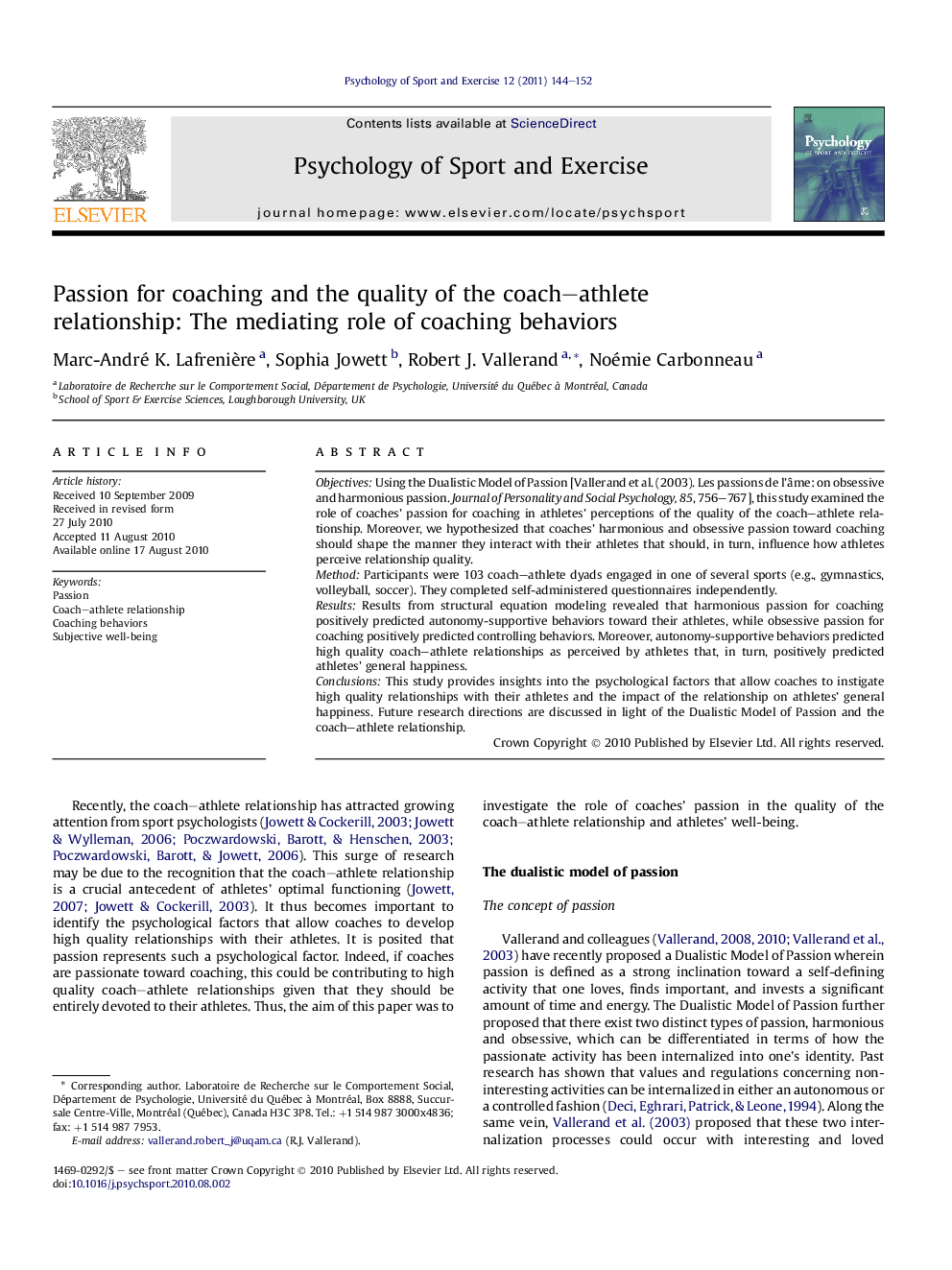| کد مقاله | کد نشریه | سال انتشار | مقاله انگلیسی | نسخه تمام متن |
|---|---|---|---|---|
| 894526 | 1472136 | 2011 | 9 صفحه PDF | دانلود رایگان |

ObjectivesUsing the Dualistic Model of Passion [Vallerand et al. (2003). Les passions de l’âme: on obsessive and harmonious passion. Journal of Personality and Social Psychology, 85, 756–767], this study examined the role of coaches’ passion for coaching in athletes’ perceptions of the quality of the coach–athlete relationship. Moreover, we hypothesized that coaches’ harmonious and obsessive passion toward coaching should shape the manner they interact with their athletes that should, in turn, influence how athletes perceive relationship quality.MethodParticipants were 103 coach–athlete dyads engaged in one of several sports (e.g., gymnastics, volleyball, soccer). They completed self-administered questionnaires independently.ResultsResults from structural equation modeling revealed that harmonious passion for coaching positively predicted autonomy-supportive behaviors toward their athletes, while obsessive passion for coaching positively predicted controlling behaviors. Moreover, autonomy-supportive behaviors predicted high quality coach–athlete relationships as perceived by athletes that, in turn, positively predicted athletes’ general happiness.ConclusionsThis study provides insights into the psychological factors that allow coaches to instigate high quality relationships with their athletes and the impact of the relationship on athletes’ general happiness. Future research directions are discussed in light of the Dualistic Model of Passion and the coach–athlete relationship.
Research highlights
► Harmonious passion for coaching positively predicted autonomy-supportive behaviors toward their athletes.
► Obsessive passion for coaching positively predicted controlling behaviors.
► Autonomy-supportive behaviors predicted high quality coach–athlete relationships.
► High quality coach–athlete relationships positively predicted athletes’ general happiness.
Journal: Psychology of Sport and Exercise - Volume 12, Issue 2, March 2011, Pages 144–152